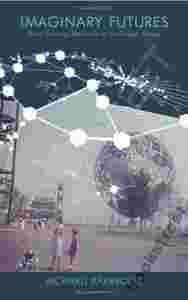|
Winner of the MEA's 2008 Marshall McLuhan Award for
Outstanding Book in the Field of Media Ecology. 'A
compelling, authoritative, and painstakingly documented
narrative, Imaginary Futures traces the emergence of the
computer era in the context of desperately competing
ideologies, economics, and empires. This is a work of
passionate and persuasive scholarship by a contemporary
social theorist at the top of his game.' Douglas
Rushkoff, author, Coercion, Media Virus, Get Back in the
Box. 'Imaginary Futures gives insight into how the
dominant utopias of today were shaped in the time of the
Cold War and served the ideological needs of the elites.
While the Cold War West had a much better present, it
was the Soviet East which had a vision of the future.
The invention of a Western utopia became an important
factor in the struggle for global power.' Boris
Kagarlitsky, Senior Research Fellow, Institute for
Comparative Political Studies, Russian Academy of
Sciences -- The future is now-- Richard Barbrook argues
that, at the height of the Cold War, the Americans
invented a truly revolutionary tool: the Internet.Yet,
for all of its libertarian potential, hi-tech science
soon became a tool of geopolitical dominance. The rest
of the world was expected to follow America's path into
the networked future. Today, we're still told that the
Net is creating the information society. Barbrook shows
how we can reclaim its revolutionary purpose: how the
DIY ethic of the internet can help people shape
information technologies in their own interest and
reinvent their own, improved visions of the
future. |
|

